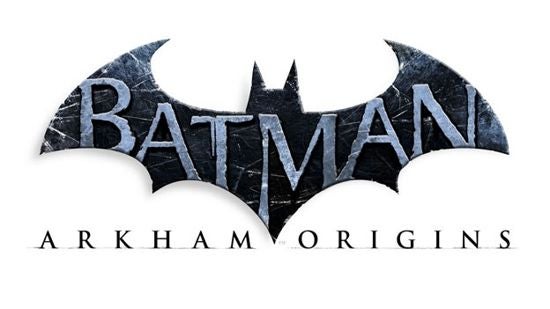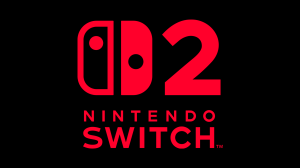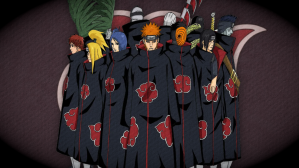Another Halloween, and another Batman: Arkham game has arrived, and I find myself once again on the fence of how this most recent entry sits with me. Though I find it only marginally better than Arkham City, it doesn’t reach the heights of Arkham Asylum. Arkham: Origins is a prequel to the first two games, and finds our Caped Crusader in his second year of fighting crime on the dark, corrupted streets of Gotham City and things are getting no better. In fact, things only get worse on Christmas Eve when Black Mask leads a deadly and explosive escape from Blackgate Prison. In this introductory level, we are given a tutorial on gameplay; the gameplay that has become a staple for this series. After facing off with criminals and Killer Croc (much smaller than his later appearances), Batman flies off to the Batcave (the real one this time) where he analyzes a data cache left behind by Black Mask, and informs Alfred that Black Mask has hired 8 deadly assassins to kill him. The winner will take home a prize of 50 million dollars and the honor of having killed the Would-Be Hero of Gotham.Though this is the basic premise of the game, these assassins take an almost backseat ride for the majority of the story, appearing only when the story necessitates it and for some, purely in a side-missions way. Of course, that’s not to say these characters don’t make a high impression when they do appear. The fight scenes against Firefly, Bane, and Deathstroke are extensive and exciting, each one forcing you to take different tactics then you have with other enemies and, finally, giving one a sense of a “Boss” fight, something that seemed to be lacking with previous entries (Solomon Grundy and Poison Ivy not withstanding). Even Copperhead, a somewhat surprising pick for a villain, manages to make an impact even though it leads to another “Batman is sick, must find cure” scenario. Unfortunately, not all of the villains get their time to shine. The fight with Electrocutioner is short and funnily embarrassing and, though his story-arc takes a decidedly dark and surprising turn, he nonetheless poses no threat and could have been replaced with any default character. The most disappointing setups are Deadshot and Lady Shiva, both relegated to side-missions and no impressive battles; Deadshot is an elongated Stealth mission, and Shiva is a watered down Talia Ah-Goul with ninjas. Poor Croc suffers as well, being regulated as the tutorial boss fight of sorts.As you can see, this game gives me the good and then the bad, switching back-and-forth at a constant pace. I have to praise the story, despite it once again being driven mainly by the Joker. You wouldn’t think this at first but, after a twist about halfway through, the Joker is front-and-center, again the driving force behind the story. I can understand the reasoning behind this. Arkham City’s ended with the death of the Joker and involved heavily around the relationship of Batman and the Joker. So, if we’re delving into the origins of our hero, it makes sense to explore the origins of the relationship between these two men. Unfortunately, we learn nothing new and that’s where this story fails. Despite the interesting way the developers delve into the psyche of the Joker when he discusses Batman after their initial fight, we are not given any new or revealing information that surprises us. It’s what we have always known.I enjoy the Joker, but I also feel like he is also a crutch. The developers know that he’s a fan favorite and can’t lose with him. Unfortunately, this eventually leads us to a place where the same lines and scenarios continually happen, leaving no room for surprise. It’s the reason why I was so shocked and excited by the end of Arkham City because I was curious and hopeful of what they would decide afterwards. Unfortunately, we’re not treated to that and we are stuck with a story that has no such surprises. In fact, I became more interested in Bane’s character, him having gone through the biggest transformation in-game.These detractions doesn’t mean the story isn’t good, as I did enjoy it. But, after three games, it didn’t have the same kind of impact that Arkham Asylum did. I find that it had more of a cohesive feel than City did; that was a game I felt they crammed too much in and, because of that, lost focus on the story. This game, sadly, loses its focus on the side-missions. 90% of the side-missions add up to “go here, fight/find/destroy this, move on”. There’s no real urgency or interest in any of it. Even “Enigma’s” games aren’t as fun or challenging as they once were, his master plan never amounting to much. At least in City you were able to traverse rooms and solve puzzles and such; this one you’re simply unlocking towers and finding data caches. There’s not even a face-to-face meeting. A lot of these missions feel mostly like filler; some way to pass the time between story points.Despite these negative points, the game has some high ones as well. Most notably, is its continuation of great voice acting. Since Asylum the voice acting on these games has always been top notch, so it wasn’t much of a surprise. But, with the departure of Kevin Conroy as Batman and Mark Hamill as the Joker, many (as well as myself) were worried about how our favorite characters would sound. Luckily, I was pleasantly surprised. Troy Baker (the Joker) and Roger Craig Smith do an outstanding job at sounding like the two stars while adding a sense of needed “youth” to these two characters. One can hear the influences of Hamill and Conroy in both and we can tell the respect Baker and Smith has for them as they try to carry on the tremendous job those two have done. Besides that, the game is once again beautiful, though not as captivating since it’s basically a “prettier” Arkham City. More importantly, Batman, after coming off as kind of a jerk in Arkham City, becomes likeable and mostly relatable in this game. His coming to realize that he needs other people to succeed at this job is a far cry from the one in Arkham City who seemed to almost resent everyone that was trying to help. It makes sense that he would want to be alone in this game, not yet realizing that his strength comes from those around him, as well as in himself.Despite its flaws and slight stale taste, Arkham Origins is still a good game. It adds a visual image to the information we’ve already had, and has fun with these established characters and locations. For any Arkham series fans old and new, it’s a definite must-have. Unfortunately, with the lower reviews this game has been getting, WB Montreal has to do something big and innovative to keep this game moving forward and make it fresh because, as of right now, it’s resting on its laurels and for a company that seems to have a great understanding of what makes a Batman game great, it would be a shame to see them fail due to laziness or fear to try something new.
Batman Arkham Origins Review: How Does It Compare To Previous Games?
Another Halloween, and another Batman: Arkham game has arrived, and I find myself once again on […]










